The Qualities of Godly Deacons - 1 Timothy 3:8-13
As many of you know, Providence is moving towards ordaining and installing our own church officers: both elders and deacons. According to God’s will those are the only two church offices, and last week, we looked at the qualifications for overseer or elder, and this morning we’ll be looking at the qualifications for deacons.

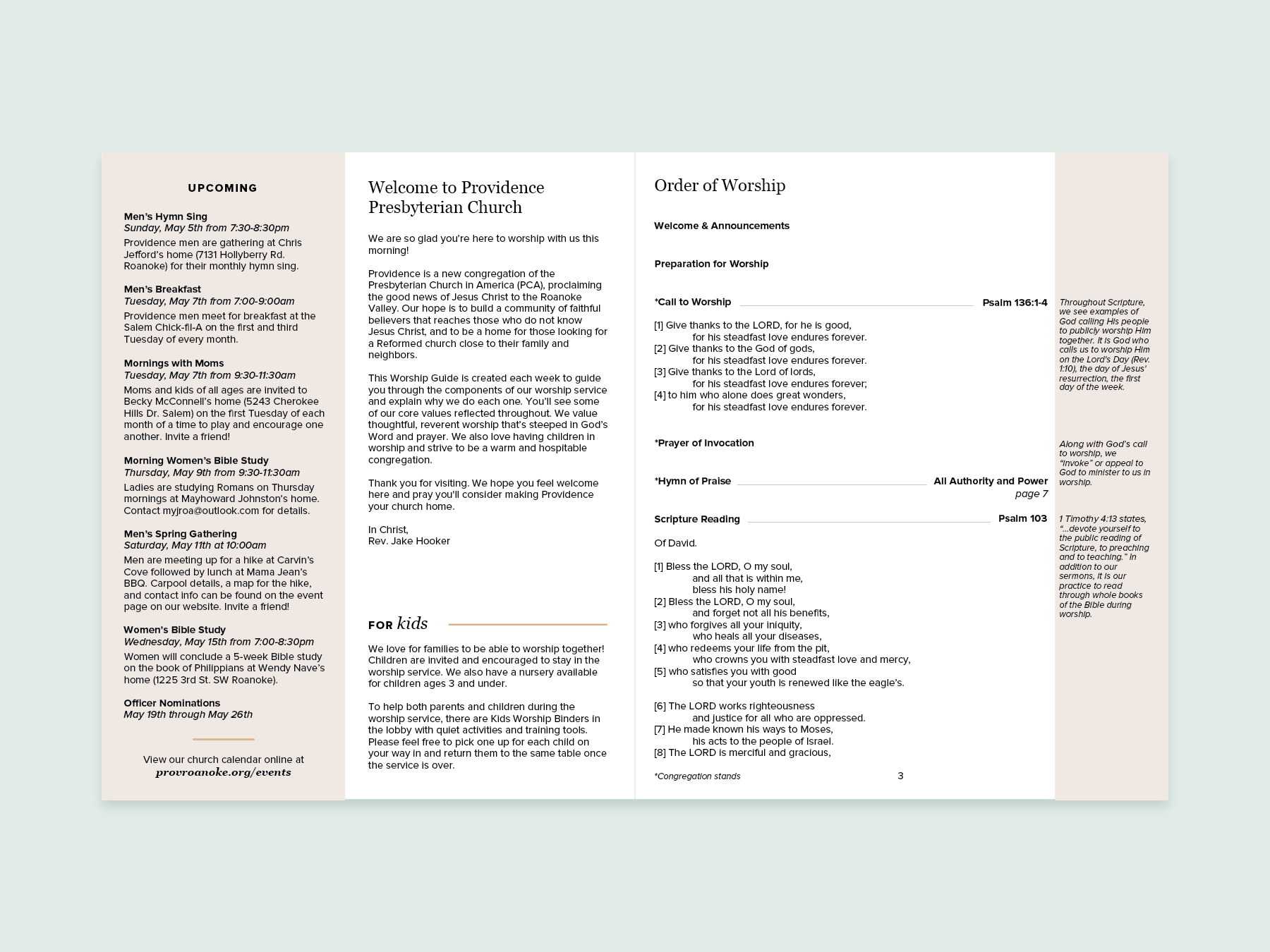
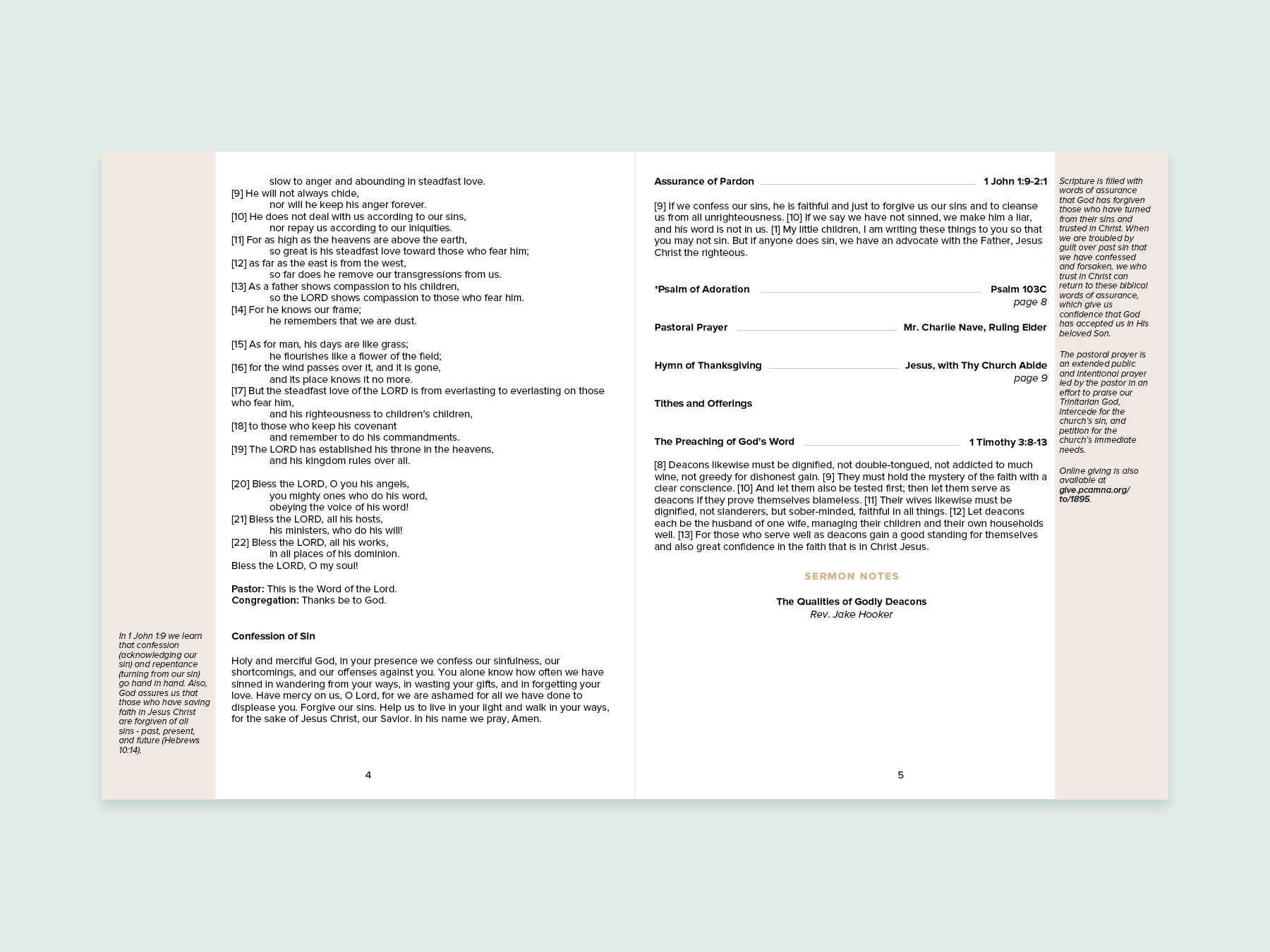
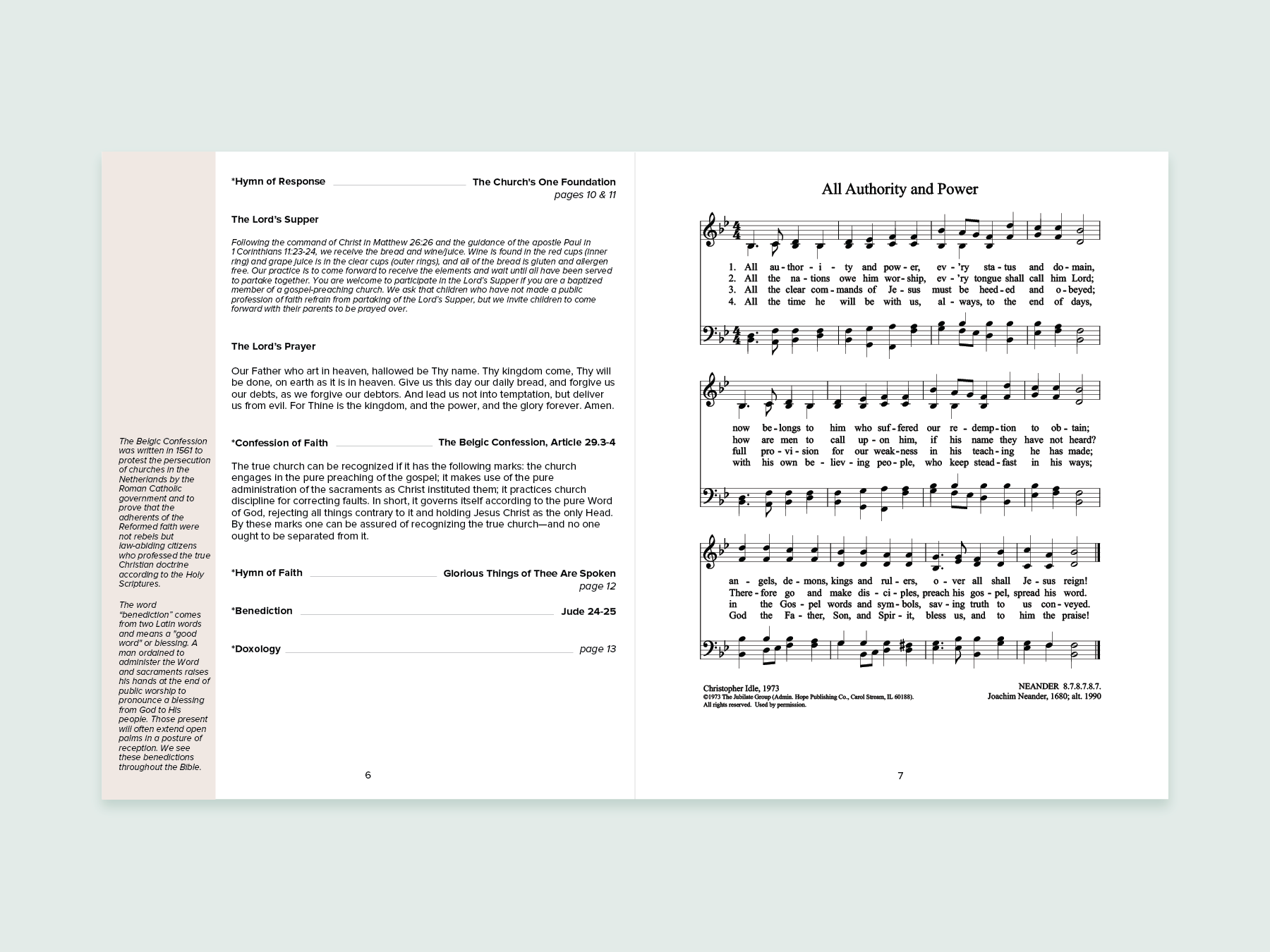
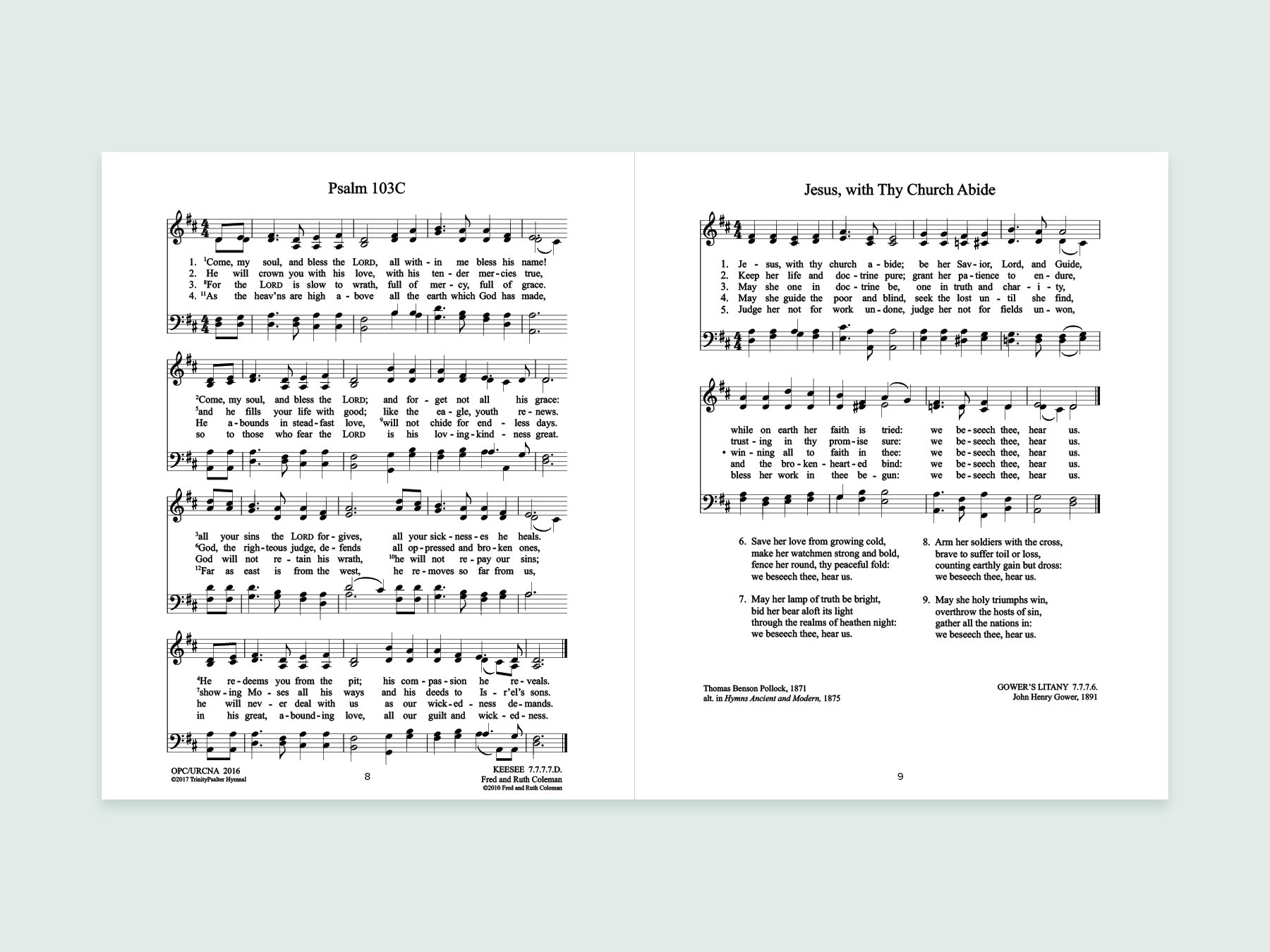
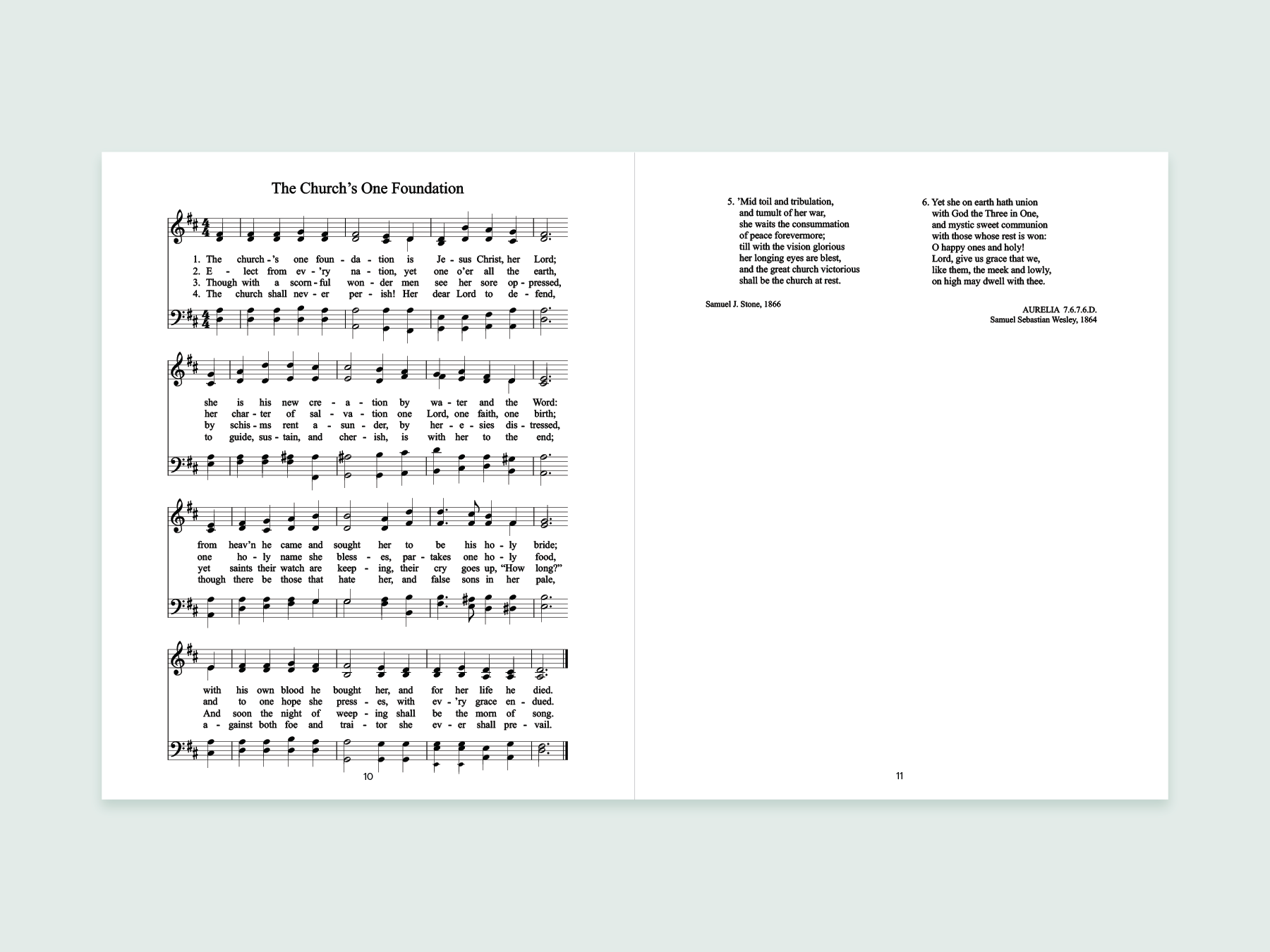
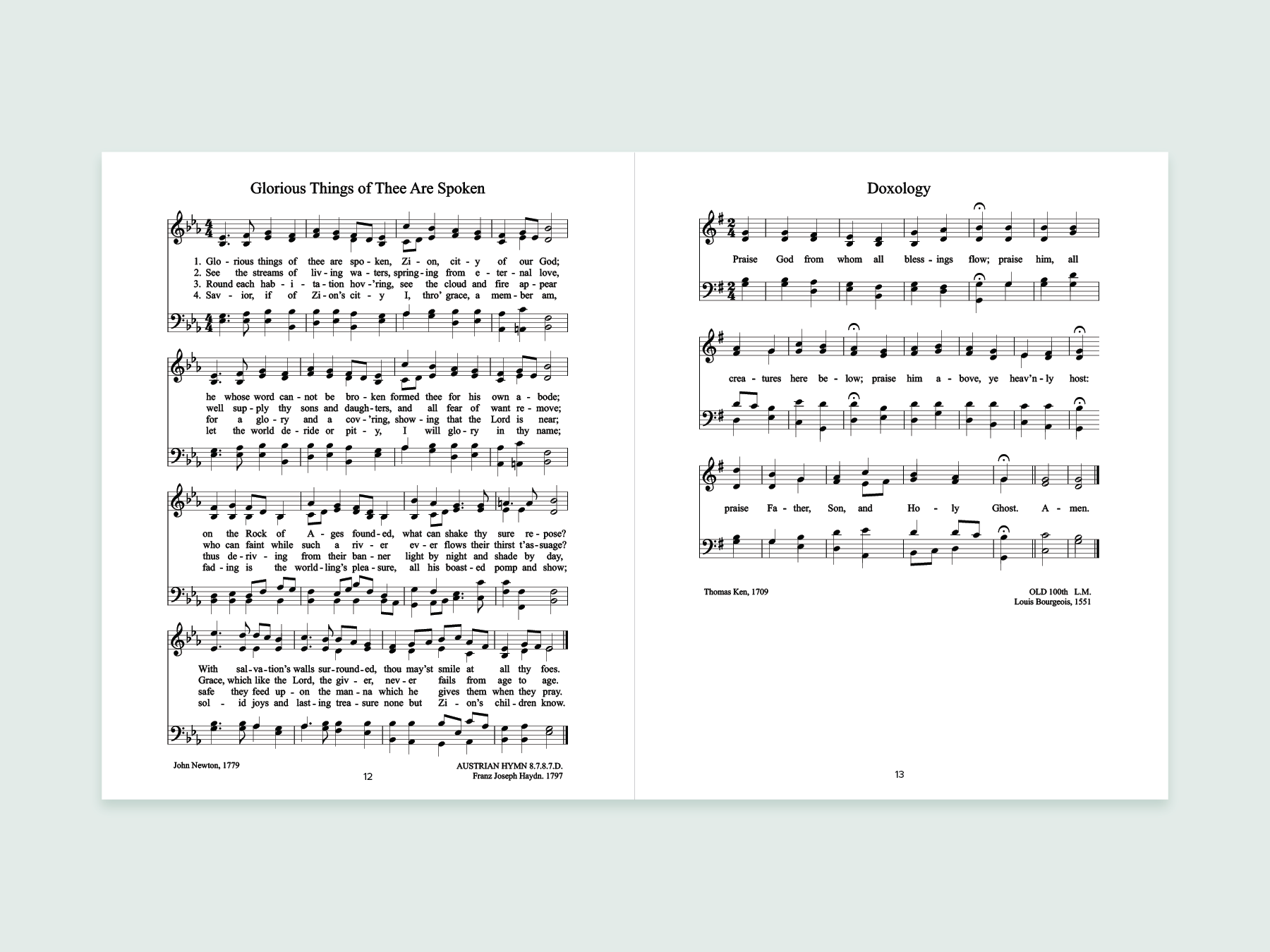

One of the more curious things about 1 Timothy 3:8-13 is that Paul outlines the qualifications for deacons without explaining to Timothy what deacons are supposed to do!
Deacons are sort of like that guy at work who is clearly getting paid, and acts like he’s supposed to be there, but no one knows exactly what he does.
That seems to be the case for deacons in broader evangelicalism. In fact, this confusion over the roles of deacons have led some churches to simply ignore the office altogether. There are countless big box non-denominational churches that have men serving as elders but deacons are curiously absent. Or perhaps they have deacons, like in some Southern Baptist churches, who function as elders!
But then even if a church does have deacons, they’re roles are reduced to glorified custodians, who’s only responsibilities are to cut the church lawn and change the light bulbs in the sanctuary. Or if their not glorified custodians then their glorified accountants who’s sole responsibility is to manage the church’s finances.
What are their responsibilities?
We actually learn about the responsibilities of deacons in Acts 6:1-6. If you have your copy of God’s Word, flip with me there.
“Now in these days when the disciples were increasing in number, a complaint by the Hellenists arose against the Hebrews because their widows were being neglected in the daily distribution. 2 And the twelve summoned the full number of the disciples and said, “It is not right that we should give up preaching the word of God to serve tables.
3 Therefore, brothers, pick out from among you seven men of good repute, full of the Spirit and of wisdom, whom we will appoint to this duty. 4 But we will devote ourselves to prayer and to the ministry of the word.” 5 And what they said pleased the whole gathering, and they chose Stephen, a man full of faith and of the Holy Spirit, and Philip, and Prochorus, and Nicanor, and Timon, and Parmenas, and Nicolaus, a proselyte of Antioch. 6 These they set before the apostles, and they prayed and laid their hands on them.”
The key that I want you all to see in this passage is that the Apostles and elders decided that “It wasn’t good for them to give up the preaching of the Word to serve tables.”
Now that doesn’t mean that the deacons are supposed to take our orders and bring our food out to us at our next church potluck. Deacons are not glorified waiters either.
What we see in this passage is a distinction being made between the preaching of the word and sympathy and service to those in the church. We might even call it a distinction between word and deed ministry. If the elders’ primary responsibility is the ministry of the word, while deacons responsibility is deed ministry.
I like the way our denomination defines the role of deacons in our Book of Church Order chapter 9 paragraph 1: “The office of deacon is set forth in the Scriptures as ordinary and perpetual in the Church. The office is one of sympathy and service, after the example of the Lord Jesus; it expresses also the communion of saints, especially in their helping one another in time of need.”
It then goes on to say in paragraph 3, “To the office of deacon, which is spiritual in nature, shall be chosen men of spiritual character, honest repute, exemplary lives, brotherly spirit, warm sympathies, and sound judgment.”
I’ll be honest, I do feel a little bit nerdy to be reading our denomination’s Book of Church Order in a sermon, but what I appreciate about what it says in those paragraphs is that deacons’ ministry is sympathy and service and that the office of deacon is spiritual in nature!
It’s not like the elders are the spiritual men of the church and the deacons are the go-fors of the church. All church officers should be spiritually minded men!
Deacons are spiritually minded men who love Christ so much they want to serve His bride - the church.
And Paul gives us four qualities to look for in men who are called to be deacons: first, they must be men of character, second, men of faith, and third, they must be men who love the work, and fourth, they must be men who lead their families well, who can anticipate a glorious reward.
Men of character (v. 8)
Paul begins his qualifications for deacons in verse 8 in the same place he began his qualifications for elders: “Deacons likewise must be dignified…”
The ‘likewise’ certainly alludes to character qualifications for elders, because deacons too must be men of high character, in fact, as Paul says, they must be dignified.
The Greek word literally means, “worthy of respect” or “noble,” which simply means deacons too, must be men of high moral character. Again, it’s not like we need godly men to serve as elders, but any man who’s good with a hammer and can throw a budget together is automatically qualified to serve as a deacon!
No deacons must be godly men of high character as well. After all, the entire list in verse 8 adds some specificity to deacons’ character qualifications. Deacons should, “...not [be] double-tongued, not addicted to much wine, not greedy for dishonest gain.”
There’s tremendous overlap between what Paul says here and what he said of elders in verses 2-3.
Deacons should not be “double-tongued.” The Greek word for double-tongued can mean “insincere” or “duplicitous.” Deacons should not be the sort of men who can never shoot you straight. They should not be the kind of men whose words are deceptive or misleading, saying one thing but meaning another.
Nor should deacons be the sort of men who tell you what you want to hear in order to avoid hurting your feelings or out of fear of a confrontation.
The idea that Paul is communicating to Timothy is that deacons must be trustworthy men. They need to be men who you can always count on to tell the truth. Their word is their bond and their yes means yes and their no means no.
Similarly, deacons should be temperate men. They should not be, as Paul says, “addicted to much wine.” Again it’s nearly identical to what he says about elders, isn’t it? Deacons shouldn’t be “addicted to much wine” and elders should not be “drunkards.”
Deacons too, should be men of moderation and temperance, but more importantly, Paul is telling Timothy that deacons shouldn’t be men of vice. They shouldn’t be men who have hidden addictions, whether that’s alcohol, pornography, gambling, fill in the blank. Deacons should be just like elders: godly men full of self-control.
Additionally, they should not be “greedy for dishonest gain.” Again, this is very similar to what Paul says about elders. He says elders should not be “lovers of money.” In a similar manner, deacons should not be “greedy for dishonest gain.”
In other words, deacons shouldn’t be the sort of men who will do whatever it takes to make a buck. They should be men who have a godly, moral compass. Deacons are the kind of men who are concerned with ethics, that is, they’re not only concerned with what they do, but how they do it.
Which is incredibly important in an age of pragmatism. In our culture few are concerned with how things are done, because everyone is more concerned that you got it done. More and more people have become indifferent towards ethical questions. But that shouldn’t be the case with deacons. They should be moral, godly men.
But all of verse 8 is centered around character. Which makes sense, doesn’t it? Acts 6 makes it clear that deacons have a wide range of responsibilities which would include everything from ministering to the sick, friendless, to assisting those who are in distress, and often when you minister to people in those situations you learn private, sometimes embarrassing information about them!
They might see someone’s personal finances. They might know about your private health concerns. You might learn about a broken relationship. These are all the sorts of things deacons may learn about people in the congregation.
But, godly deacons are not men who upon discovering something embarrassing about you, sit in judgment and look down upon you and ask, “how did you get here?” Rather, they’re the sort of men who upon discovering something embarrassing about you ask, “how can we help?”
Deacons are bent towards service because they’re men of godly, sympathetic character.
Men of faith (v. 9)
Sometimes within church circles another caricature can arise to which I’ve alluded to a few times: elders are theologically asistute, spiritually-minded men while the deacons are theologically ignorant, earthly minded men.
But Paul certainly didn’t think that was the case. Look at what he says in verse 9. Deacons must, “...hold the mystery of the faith with a clear conscience.”
“The mystery of the faith,” doesn’t mean that our Christian faith is incomprehensible, rather he’s referring to a general truth about our faith that’s captured so well in the lyric from And Can It Be: “Amazing love! How can it be? That Thou, my God, shouldst die for me?” We can all spend a lifetime reflecting on that mysterious, glorious truth, can’t we?
And so, when Paul speaks about “the mystery of the faith,” he’s using it as a general term to summarize the Christian faith. He uses that language with some degree of regularity, in fact, he uses it in verse 16, when he speaks of the “mystery of godliness.”
But really the emphasis in verse 9 is on having a clear conscience, which is something he’s referred to already a few times in 1 Timothy already, but here he’s saying that deacons must be men who cling to the mysterious gospel of grace without any reservation. Their faith is deeply rooted and it governs, guides, and directs their lives.
Which is simply another way of saying, deacons are men whose lives are consistent. They’re not perfect by any means, but in general, the way they live reflects what they profess to believe, which is why they have a clear conscience!
Which of course makes sense! There’s something truly liberating about living life, albeit imperfectly, to the best of your ability in accordance with what you profess to believe! There’s a steadiness, a calmness, a level of deep contentment that comes as a result.
Because deacons should not be men who live in a constant state of spiritual turmoil. Deacons’ should have faith that is anchored so deeply they live life with incredible peace of mind.
But in order to live life in that manner, Deacons must be men of deep Biblical and theological understanding and conviction. They must hold to the faith.
But there is one major difference between the qualifications for elders and deacons: Paul doesn’t require deacons to be able to teach.
That isn’t to say deacons are unable or forbidden from teaching, it simply means that it isn’t a qualification. Consider Acts 6: Stephen, was a deacon, who possessed incredible theological understanding, wasn’t he? Go back sometime and read his speech in Acts 6.
The reality is, in order to hold to the mystery of the faith you have to know the faith! And this is an incredibly important point, because far too often we tend to think of folks falling into one of two camps: they're either very theologically minded or they care about people.
Perhaps you’ve heard someone say that a person, “is so heavenly minded he’s of no earthly good.”
The point is that he spends so much time thinking about the Bible and theology that he doesn’t seem to care about people. But Paul doesn’t divide those things, in fact, Paul thinks they're connected to one another.
Paul seems to think that deacons need to be heavenly minded so that they can be of earthly good. Someone who genuinely loves the Lord should also love people - it’s that simple. You see, deacons are deep theological thinkers and that glorious theology is the engine that drives their ministry of empathy and compassion.
Men who love the work (v. 10)
So, deacons must be men of faith and conviction who also love the work. Which is what verse 10 is really getting at. Paul says deacons must, “be tested first; then let them serve as deacons if they prove themselves blameless.”
You might read that and initially think that Paul is instructing churches to hold open try-outs to serve as deacons. We’ll have some cone drills and then see how quickly they can take out the trash, mow the lawn, and reconcile the budget!
Of course, I’m kidding, but it does sound like there should be a deacon trial period. Test a few men out as deacons, see how it works out, and then decide if they’re good fits or not. But that’s not what Paul is saying.
Paul is encouraging Timothy to look for men who have demonstrated the qualifications and a love for the work over time. Are they godly men of character who are naturally wired to serve the church? Are they making sure other people are taken care of, are they serving the church without anyone prompting them?
That’s what he means when he says they should “be tested first.” So, unfortunately, no deacon cone drills or trial periods.
Has he demonstrated himself dignified, not double-tongued, not addicted to much wine, not greedy for dishonest gain, holding the mystery of the faith with a clear conscience? As you’ve observed potential deacon candidates, ask yourself does that man appear qualified and have a love for the work?
Study his behavior and life before saying, “that man right there would make an excellent deacon.” Deacons, like elders, must demonstrate a desire and aptitude for the work!
Men who lead their families well (vv. 11-12)
And just like elders, deacons should also lead their families well.
Look at verse 12: “Let deacons each be the husband of one wife, managing their children and their own households well.” Deacons, too, are men who are committed to their wives and seek to raise their family in the fear and admonition of the Lord.
Paul explains why household management is so important in verse 5: “if someone does not know how to manage his own household, how will he care for God's church?” The same is true for deacons, isn’t it? If a deacon cannot manage his own household well, why should we expect him to manage the church well?
On the flipside, if a deacon or elder does manage his household well, then that is a wonderful sign for how he will manage the church! So household management is just important for deacons as it is for elders.
But verse 12, isn’t the verse that typically gets the press in this particular passage. The verse that gets the press is what Paul says in verse 11.
“Their wives likewise must be dignified, not slanderers, but sober-minded, faithful in all things.” Perhaps you noticed the footnote in your Bible which says, “wives” can also be translated as “women.”
Which means verse 11 could be translated as the NIV does: “In the same way, the women are to be worthy of respect, not malicious talkers but temperate and trustworthy in everything.”
Or as the NASB translated it, “Women must likewise be dignified, not malicious gossips, but temperate, faithful in all things.”
And so the question naturally is how do we understand what Paul is saying in verse 11? Is he giving qualifications for female deacons, deaconesses, or is he referring to deacons’ wives or does he have something else in mind like women who assist the deacons?
How do we understand what Paul says in verse 11?
There’s a lot that could be said here, so I’m going to try to lay things out quickly and succinctly.
The most obvious problem with arguing in favor of deaconesses from verse 11 is what Paul says in verse 12: “Let deacons each be the husband of one wife…” If Paul intended for us to understand verse 11 as qualifications for deaconesses, why doesn’t he instruct them to be the wife of one husband?
And to go one step further, how does the office of deaconess not conflict with what Paul said at the end 1 Timothy 2, “I do not permit a woman to teach or exercise authority over a man?”
Being a church officer regardless of whether you’re an elder or a deacon, is a position of authority in the church. The mere fact that Paul outlines qualifications for both offices suggests authority within the church.
Again, there’s more that could be said, but suffice it to say, it doesn’t seem that Paul is establishing the office of deaconess in 11. But that brings us back to the original question doesn’t it? If Paul isn’t giving qualifications for deaconesses, how are we to understand the qualifications he gives in verse 11?
I think that Paul is most likely giving qualifications for deacons’ wives as translated by the ESV, or perhaps women who serve as assistants to the deacons.
The reason Paul thought it was necessary to give deacons’ wives or women assistants to the deacons qualifications is because there are countless scenarios where it would be entirely inappropriate for a male to minister to a woman. But in those exact same scenarios it would be entirely appropriate for a woman to minister to another woman.
That’s just the first example that popped into my mind but there are countless other examples where the deacons can and should enlist the help of women who do not formally hold church office.
But with that said, deacons’ wives or women who assist the deacons may be privy to personal or scandalous information which is why it’s so important for these women to be of particularly high moral character.
They too must “be dignified, not slanderers, but sober-minded, faithful in all things.”
The key to understanding all of this is what Paul lays out in 1 Timothy chapter 5. There he gives specific instructions for how women are to minister to one another.
I want to encourage all of you this morning: please do not wait for a formal title or office before reaching out to someone that is hurting.
Please take the initiative and simply do it. It means a lot to people when you simply show them that you’re thinking of them and that you care. You don’t need to ask for permission to pray or serve someone in distress.
But nevertheless, deacons must manage their households well and those who assist them must be men and women of high moral character.
To Glorify God (v. 13)
Typically, deacons are the kind of men who don’t mind working behind the scenes. In fact, their work often gets very little recognition.
Which is why deacons are sometimes forgotten or taken for granted. But I hope verse 13 is an encouragement for all of us, but especially the men who will one day serve the church as deacons.
Paul says, “For those who serve well as deacons gain a good standing for themselves and also great confidence in the faith that is in Christ Jesus.”
Deacons will earn the respect of those they serve and they will gain “...great confidence in the faith that is in Christ Jesus.”
There’s a sense in which God uses the deacon’s service to the church in order to build and strengthen his faith in Christ.
Because at the end of the day, deacons work for an audience of one. They’re not seeking their own recognition, but are working to serve and please their master, the living and true God.
We live in a time in the church where it seems like mercy ministry is on everyone’s mind. We should serve these people or we should serve that group, and it’s usually well-intentioned. But Paul never separates sympathy and service from the gospel. In fact, the men who are called to serve as deacons must be men whose lives have been transformed by the gospel.
After all, the word deacon literally means, “servant,” which is quite appropriate isn’t it? Even if you’re technically not a deacon, but you’re a believer in the Lord Jesus Christ, isn’t that exactly what you are? A servant of the most high?
Paul regularly referred to himself as a slave or servant of Christ. How’s that for a title? Deacons aren’t known for rigid power, but for their selfless service.
Because selfless service is a demonstration of Christ’s love, which is exactly what Jesus told his disciples after he washed their feet in the upper room. He said,
“A new commandment I give to you, that you love one another: just as I have loved you, you also are to love one another. 35 By this all people will know that you are my disciples, if you have love for one another.”
We’re all called to serve and love one another, but those who are called to the office of deacon have a unique opportunity to beautifully reflect the love of their Savior.
Service is how Christ demonstrated his love for the church and service to the church is how deacons demonstrate their love for Christ.
Let’s pray together.
